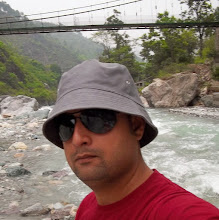Ustad Zakir Hussain wasn’t just an elite level tabla player, he was a complete musician in every sense of the word. His encyclopedic knowledge of Hindustani classical music of North India, Carnatic music of South India, Western genres such as Western classical, Jazz, Rock, Symphony and even African rhythmic music are evident in the way he explained them in descriptive yet simple language which keeps the layman reader engaged.
Those born in the 20th century in India will enjoy reading about the musical scene in the country during the 60s, 70s & 80s. Surprisingly, he demonstrates an in-depth knowledge of Bollywood songs for he played the tabla in many film songs of the 1960s to support his family financially.
Having accompanied from a young age past masters such as Pt. Ravi Shankar, Ustad Vilayat Khan, Ustad Sultan Khan, Pt. Hariprasad Chaurasia, Pt. Shiv Kumar Sharma and several others who were his father’s contemporaries, he talks about them in great reverence in a true reflection of the Master-Disciple (Guru-Shishya) tradition he was brought up in. But it was his long years of professional and personal association with the sarod maestro Ustad Ali Akbar Khan that held a special place for him. He shares those memories in detail with a few quirky anecdotes thrown in that shed light on the amusing personality traits of the great sarod player. For example, despite being his senior, Ali Akbar Khan sought Zakir's permission when he decided to marry the latter's student!
Two things really stood out for me in this book. One, the insightful manner in which he explains the intricacies when the tabla accompanies a fellow instrument such as the sitar or sarod versus when it accompanies a Hindustani classical vocalist versus when it accompanies a Kathak dancer. Two, how an Afro-Cuban guitarist Armando Peraza encouraged him to explore the tabla in a manner that is markedly different from the traditional Hindustani classical rhythms. In his many years of experimentation with other genres and playing fusion music with Western musicians, Zakir Hussain never forgot that he is first and foremost a Hindustani classical instrumentalist, the single most important piece of advice his father, Ustab Allarakha Qureshi gave him.
There is also one masterly piece of advice for all budding musicians, tabla players in particular. The need for tabla players to accompany vocalists to understand how the emotional content is expressed through voice. To prove his point, he says it was years later that he realised why a teenage Zakir was mandated by his father to visit the house of Ustad Bade Ghulam Ali Khan (one of the greatest Hindustani classical vocalists) every Sunday to spend time with the great man. There are several such words of wisdom.
But this book is not all about his musical journey. Nasreen Munni Kabir has tried to mix it up with anecdotes and questions from the family history as well and he has answered them quite candidly. She explores his growing up years at the Mumbai neighbourhood of Mahim, the financial struggles of the family during his growing up years, and the tragic loss of three siblings and his illustrious father that haven’t really healed even though decades have passed. For example, he reveals that he had a younger brother Munnawar who was a born rhythm player and would have become a great musician had he not tragically died of dog bite at age four. One can feel the sense of pride in his words when he talks about the successes his other two younger brothers, Fazal Qureshi (a tabla player) & Taufiq Qureshi (a Djembe player) have achieved in their careers. It wasn't easy for both to carve out a niche for themselves emerging from the shadow of such an illustrious older brother. He also comes across as an excited head of the family when he talks about the musical talents of his nieces and nephews, the next generation of the Qureshi family. He remained quintessentially a boy from Mahim, an Indian at heart. Decades of living in the US hadn’t changed him.
As she writes in the Introduction about the nature of the book, Nasreen Munni Kabir has kept it true to its spirit by keeping the language casual, conversational and very engaging. There isn’t a particular narrative style and she has presented them in as authentic a manner as the tabla maestro explains to her. Being the nephew of a Hindustani classical vocalist, I could relate to some of the things the book talks about after having grown up observing my paternal uncle discuss with his students.
He was one of those few remaining links to that Master-Disciple tradition of knowledge transmission which was the norm till the mid 20th century prior to the advent of technology. His younger brother Fazal carries that tradition forward with the Ustad Allarakha Institute of Music.
This book has been on my bookshelf since 2021 but it never occurred to me that I would be reading it as a tribute to my favourite musician after his passing into the ages. He will be remembered and devoutly followed for generations to come for Zakir Hussain and Tabla are synonymous.
An enjoyable yet informative read about the Ustad. It is recommended to every budding musician for its words of wisdom about how to learn an instrument, improvisations when accompanying fellow musicians and ways to expand one’s horizons to get better. And also recommended to those who have more than a passing interest in music.





0 Comments